History of Aurich
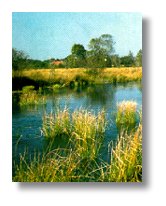
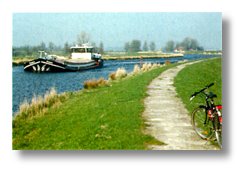
Aurich developed into the unrivalled centre of East Friesia because of the rapid growth of its cattle and horse market, and its reputation spread as far as the Mediterranean region.
The power struggles between East Friesian chieftains meant things were constantly changing in Aurich: different rulers, construction and destruction of their successive strongholds, castles and fortifications.
Aurich blossomed under the Cirksenas, who were ennobled in 1464.They built a new, imposing moated castle on the site of today`s castle, before Aurich was completely destroyed by fire at the beginning of the 16th century in the Saxonian Feuds (Sächsische Fehde).
Trade and craft industry developed rapidly and the rebuilding in the middle of the 16th century shows clear signs of town planning. The basic shape of the market place and the layout of streets and drainage ditches date from this time. Aurich also became a seat of the aristocracy at this time, laying the foundations for its important function as a centre of administration and political representation until today.
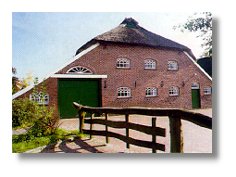
During the rapid succession of different rulers in the following centuries - in the 18th and 19th centuries alone there were Prussia, Holland, France and the Kingdom of Hannover - many of those buildings appeared which can still be admired today, mainly because of the increasing volume of administrative business. Their ornate fassades, gables and stucco work reflect the economical importance of the regional capital, which grew further in 1866 when Aurich became a garrison town.
Trade and industry could develop far more successfully here than in rural areas.
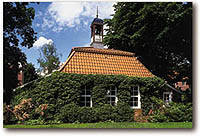
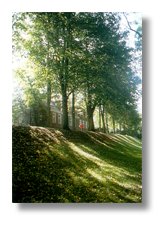
But nothing stays the same...
The reform of district boundaries in 1972 meant that the population trebled overnight. Aurich today covers an area of almost 200 square kilometres, has 40.000 inhabitants, of whom about 12.000 live in the central area. It is the seat of the district council of Aurich, which since 1977 includes the district of Norden. 170.000 people live in the administrative district.
From 1945 on Aurich could proudly call itself capital of the "Lower Saxon governmental region of Aurich". This ended in 1978, when the newly formed region "Weser-Ems" came into being. Oldenburg is the seat of this authority, while Aurich - like Osnabrück - just maintains some offices. Imagine what things would have been like if the local population had just resigned themselves to this new situation! Many predicted that Aurich would now fall into obscurity, and perhaps the pessimists would have been right, had there not been the strong will and committment to make Aurich a real centre of East Friesia. with bold planning and an innovative spirit.
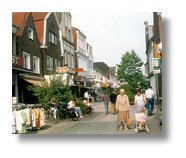
Instead the new demands of the changing times were met punctually. Where it was necessary things were restructured, space and good conditions were created for the establishment of modern industry and business. At the same time it was important to bear in mind the personal character and flair of our town, with a view to the growing importance of tourism, which was already becoming apparent at that time.
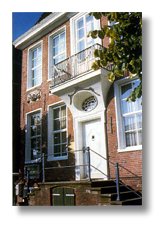
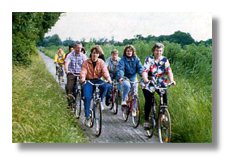
And today?
Aurich has developed into one of the most attractive and most visited places in East Friesia, with an inviting and expanding choice of places to eat and a wide variety of well-presented retail outlets.
There is ample space for all kinds of cultural events in the concert and congress hall "Brems Garten", built in 1980.
The "Carolinenhof", which was opened in 1983, provides plenty of shopping, easily reached from the underground carpark, and also plenty of entertainment: bowling alleys, cinemas and several restaurants.
A great step towards becoming the "secret capital" of East Friesia was the reorganisation of the town centre of Aurich. Narrow, busy streets were closed to create the pedestrian precinct, still quite a novelty in 1974. Now it is possible to enjoy Friesian friendliness and hospitality in the lively and vigorous heart of town without the noise of cars on and around a market place, which was rebuilt in 1991.
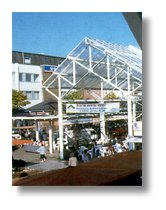
Well over 2000 years ago Aristotle described the role of a town as follows: "it must be so planned as to provide the citizens security and fortune."
We add to that, "and it should provide those things necessary to do so in a friendly, personal atmosphere."
It is in this sense that Aurich looks forward to a happy and worthwhile future!
Get some numbers, dates and facts!



